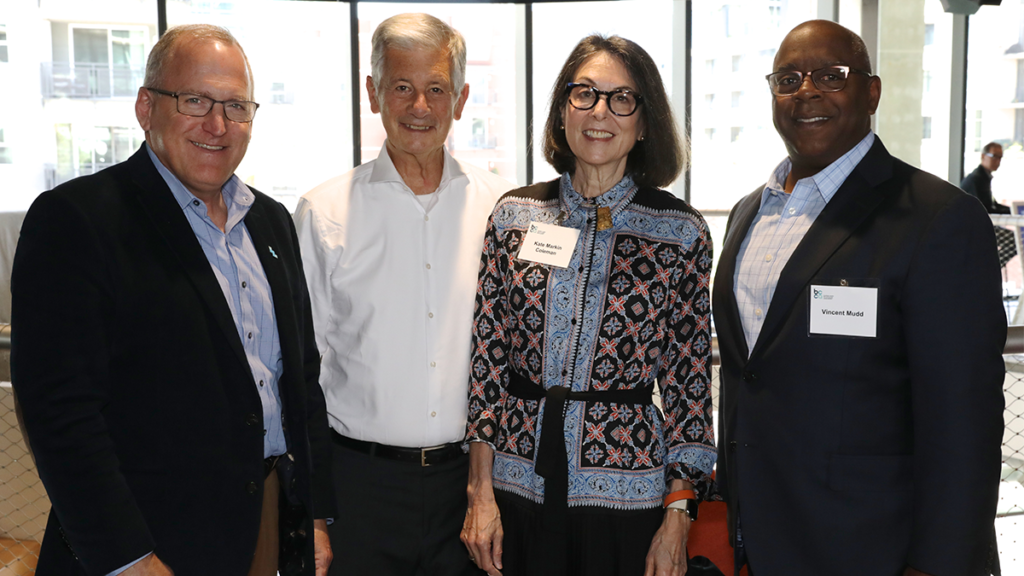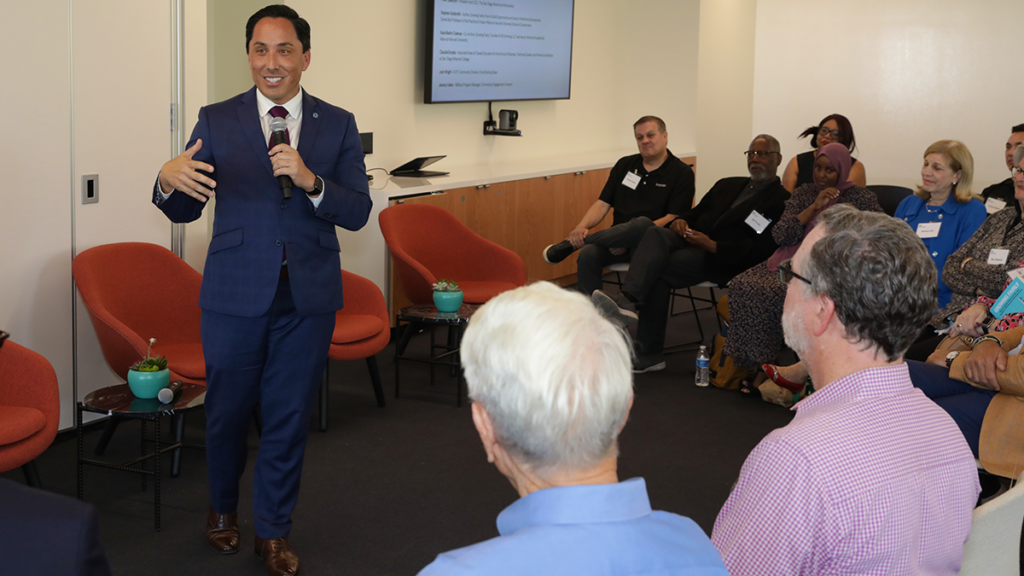
On April eighth, the San Diego Workforce Partnership and the Burnham Center for Community Advancement hosted a Community Dialogue event featuring workforce development leaders to discuss the new book Growing Fairly: How to Build Opportunity and Equity in Workforce Development. Growing Fairly was written by Stephen Goldsmith and Kate Markin Coleman who shared their experience before being joined by local leaders. Here are a few takeaways from the discussion.
“Not just talk, but action.”
Malin Burnham shared a bit about the Burnham Center for Community Advancement and their goal to make the San Diego binational region a better place to live, work and play for all. How do you accomplish such an important goal? “Not just talk, but action.” As workforce professionals, it’s important to remember that good ideas are great ideas when put them into operation. “Good ideas are not enough, we’re here to get things done,” Tad Parzen added.
We need to expand our definition of skills
To understand their region’s needs on a foundational level, organizations should make sure their definition of skills is expansive enough to accurately cover the entire spectrum. It could include up-skilling an incumbent worker or executive skill development. After they understand what constitutes skills, they need to identify which organizations are doing the work to get a person ready so they can participate in skill development opportunities.
Create ladders based on skills rather than just on degrees
Some low-wage jobs provide opportunities to learn skills that can serve as the first step in the ladder for upward mobility. By using skilling and population data, organizations can identify what the components should be of a skill-based language for their region. This allows employers and employees to use this language of skills and can lead to more equitable opportunities.
Make the data useable
Once you have regional skill needs data, how do you make sure those who need it most can access and understand it? This data can help students and job seekers make informed decisions, but it is unlikely they know how to find or understand the research. Organizations must create and utilize community partnerships to disseminate the data in ways that is actionable and digestible for the community.
Collaboration is an important piece of implementation
There must be a formal collaboration within the region if there is to be equitable change and success. A combination of the workforce, community colleges, K-12 and employers must create a common goal and a shared agenda to allow change to occur across sector and organizational boundaries.
Purchase your copy of Growing Fairly today.

